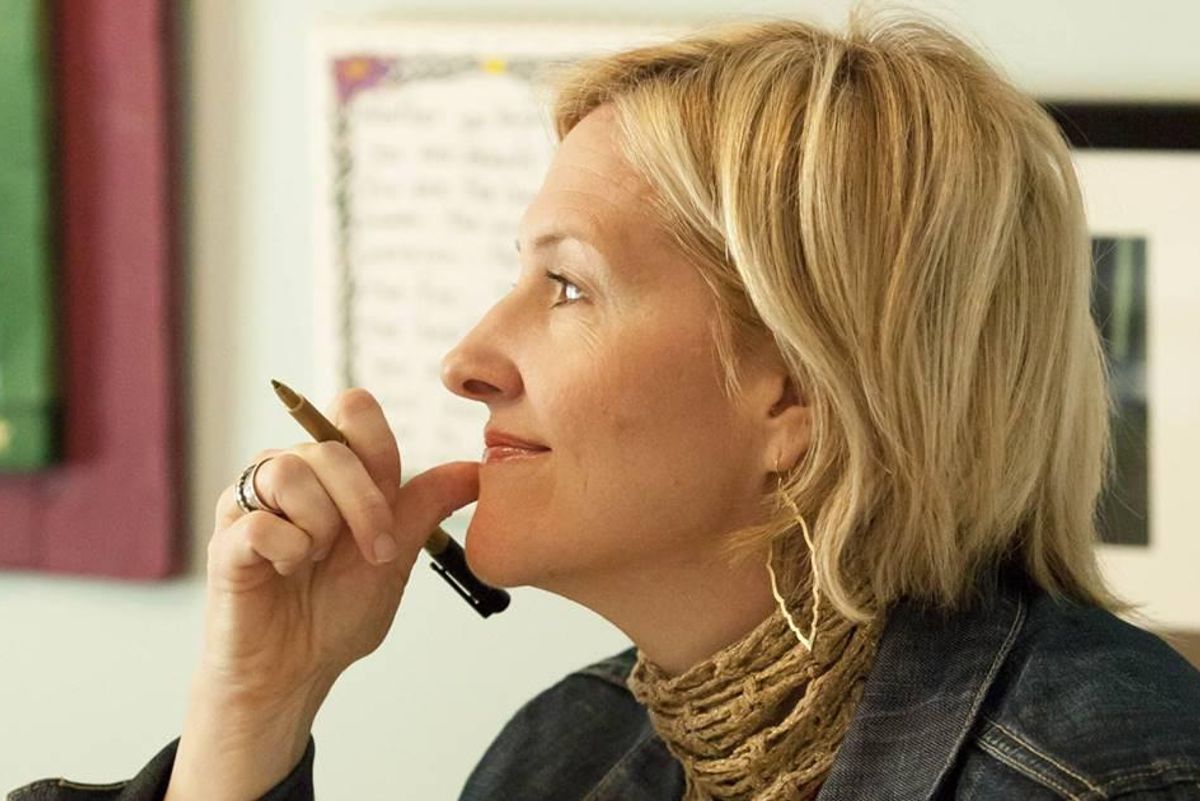Brené Brown shares her heartfelt thoughts on how long grief should last
Some comfort for those dealing with loss.

Author, researcher, and storyteller Brené Brown.
One of the most challenging things about dealing with grief is the feeling that it will never end. After losing a loved one or at the end of a relationship, we feel that something is missing in our lives and fear that hole could remain forever.
This feeling of sorrow can linger for months while we cycle through the stages of grief: denial, anger, bargaining, depression, and acceptance.
In extreme cases, people may be diagnosed with prolonged grief disorder in which they have intense feelings of grief that last all day and go on for many months. People with prolonged grief disorder may also have trouble in their personal, educational or work lives.
Psychological researcher Brené Brown shared her thoughts on the grieving process on TODAY with Hoda & Jenna in 2022 and they may be of comfort to anyone dealing with loss. Brown is known in particular for her research on shame, vulnerability, and leadership, and gained worldwide attention for her 2010 TEDx talk, "The Power of Vulnerability."
“How long does true grief last in the heart?” a fan asked Brown.
“As long as it takes,” Brown replied. “We live in a culture where people need us to move through our grief for the sake of their own comfort and grief does not have a timeline. It takes as long as it takes.
"And the best thing that we can do when we’re trying to support someone in grief is—my favorite question when I’ve got someone close to me who’s really grieving a lot is to say, ‘What does love look like right now? What does support look like right now?’” she said. “And sometimes they’ll hear, ‘You know what, can you run my carpool for me on Wednesday? Can I cuss and scream at you on the phone twice a week?’”
Brown said that she loved the question because “I don’t have the answer because not having the answer is the answer. It takes as long as it takes.”
How can people best comfort those who are grieving? Brown believes it’s all about being compassionate by understanding that all people have the ability to feel prolonged pain.
“There’s a definition of compassion in Atlas of the Heart, from Pema Chödrön, the American Buddhist nun, that says, ‘Compassion is not a relationship between the wounded and the healed. It’s a relationship between equals.’ It’s knowing your darkness well enough that you can sit in the dark with others,” Brown said.
The grieving process is complicated and not everyone goes through the steps in the same order. After a long period of feeling better, some may also experience reawakened grief in which the pain crops up again.
The powerful point Brown makes is that people shouldn’t feel pressured to get over a significant loss in their life and that if the process may be taking longer than expected, they're still OK. In fact, avoiding grief may only make things worse.
If you are experiencing grief and feel it’s getting worse over time or interferes with your ability to function, consult a mental health provider.
This article originally appeared three years ago.
- grief ›
- Why you shouldn't put a time limit on someone's grief - Upworthy ›
- Please read this before you post another RIP on social media ›
- A question about strangers brought a moving response - Upworthy ›
- Her story is funny, but its lesson will change the way you think about blaming. - Upworthy ›
- Author of 'Rainbow Bridge' poem is a woman in Scotland - Upworthy ›
- Heaven's Receptionist on TikTok helps viewers cope with loss - Upworthy ›
- Brené Brown's view on anxiety has people amusingly disagreeing - Upworthy ›
- Kelly Cervantes' 'Normal Broken' is a gift to the grieving - Upworthy ›
- Man's phone call from deceased dad is lesson on grief - Upworthy ›
- Widow defends woman who shared video of herself grieving - Upworthy ›
- 8-year-old saves up for months to buy touching Christmas gift for mom after dad passes away - Upworthy ›
- 'Alone' winner beautifully describes grief after losing child - Upworthy ›
- 10 years after his death, young dad writes emotional letter to brother who passed - Upworthy ›





 Rihanna Nails GIF
Rihanna Nails GIF

 Good luck trying to catch a gazelle.
Good luck trying to catch a gazelle. Chickens will eat just about anything.
Chickens will eat just about anything. There's actually a big difference between horses and zebras besides just the stripes.
There's actually a big difference between horses and zebras besides just the stripes.